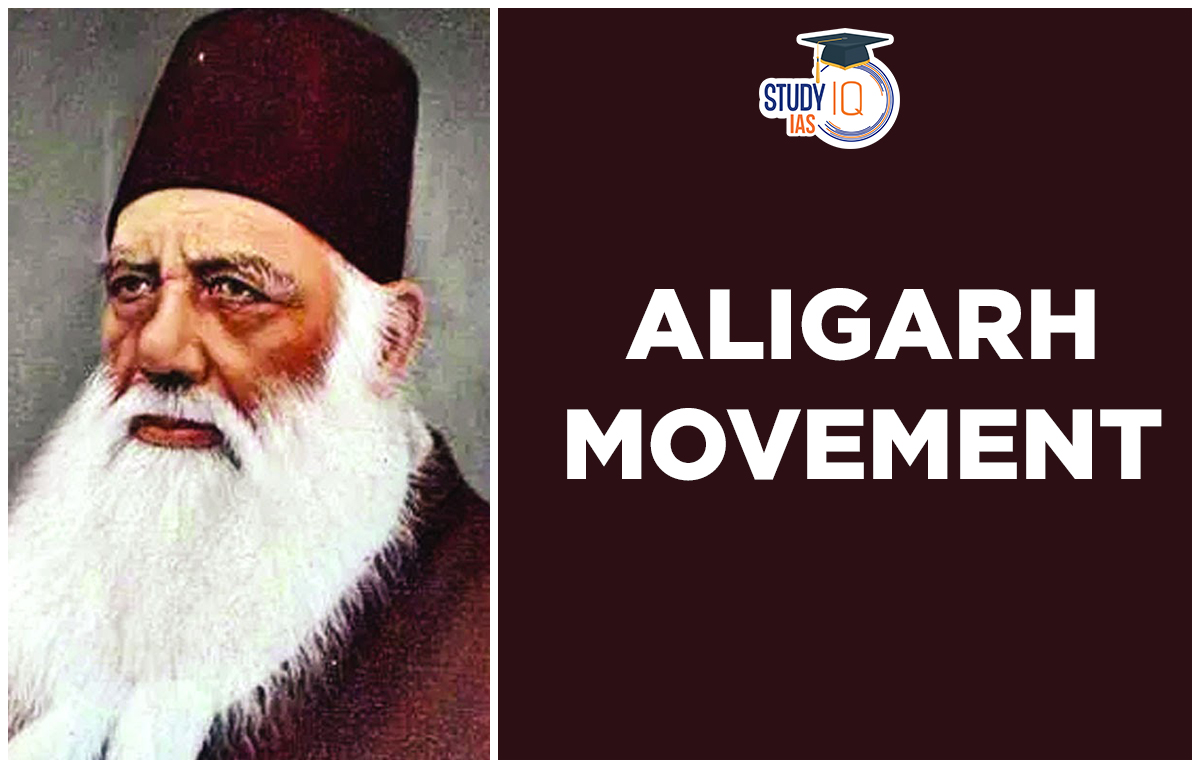Table of Contents
Aligarh Movement
Muslims consider the Aligarh Movement to be their most significant socio-religious movement. Syed Ahmad Khan (1817–1899), who has been called the most well-known Muslim person, organized it. In 1817, Syed Ahmad Khan, a member of a Muslim noble family, enlisted in the Company as a judge. Upon realization, he understood that Muslims would have to adjust to British authority. Syed Ahmad consequently counseled Muslims to embrace Western education and public service. In order to prepare for the UPSC Civil Service Exam, this article will provide you with information on the Aligarh Movement.
Read More: Faraizi Movement
Aligarh Movement History
Muslims consider the Aligarh Movement to be their most significant socio-religious movement. Syed Ahmad Khan (1817–1899), who has been called the most well-known Muslim person, organized it. In 1817, Syed Ahmad Khan, a member of a Muslim noble family, enlisted in the Company as a judge. Upon realisation, he understood that Muslims would have to adjust to British authority.
Syed Ahmad consequently counselled Muslims to embrace Western education and public service. In order to prepare for the UPSC Civil Service Exam, this article will provide you with information on the Aligarh Movement.
Read More: Wahabi Movement
Aligarh Movement Founder
Syed Ahmed Khan was a devoted employee of the British government’s court system and was born into an honourable Muslim family. He was appointed to the Imperial Legislative Council in 1878 after retiring in 1876. He received a knighthood in 1888 for his commitment. Despite his conviction that the Quran was the final authority, he attempted to harmonise Western scientific education with Quranic teachings that were to be read in light of modern rationality and science.
He asserted that religious doctrines are subject to change and that, else, they will become fossilised. Instead of placing complete trust on tradition or habit, he argued in favour of a critical mindset and intellectual freedom. He established schools in towns as a representative, had works translated into Urdu, and established the Mohammedan Anglo-Oriental College in Aligarh (later the Aligarh Muslim University) in 1875.
Read More: Akali Movement
Aligarh Movement Reason Behind
Syed Ahmad Khan espoused the idea of “practical morality,” commonly known as the essential oneness of all religions. He also emphasized the inherent parallels between Muslim and Hindu interests. According to Syed Ahmed Khan, Muslims should priorities jobs and education in order to catch up to their Hindu counterparts who had an advantage.
Read More: Singh Sabha Movement
Aligarh Movement Objective
The social improvements among Muslims regarding purdah, polygamy, widow remarriage, women’s education, enslavement, divorce, and other concerns, without damaging their adherence to Islam. The movement tried to harmonise Islam with contemporary liberal society, and its worldview was founded on a liberal interpretation of the Quran.
They aimed to give Muslims a distinctive socio-cultural identity that followed contemporary norms. He thought that becoming actively involved in politics at the time would encourage the government to be hostile to the Muslim masses. He was against Muslim political activity as a result.
Unfortunately, he allowed himself to be used by the colonial authority in its offensive program of divide and rule, and in later years, he started spreading the idea that Hindus and Muslims have different interests because of his eagerness to advance Muslims’ educational and job objectives. Syed’s progressive social beliefs were spread through the publication of Tahdhib-ul-Akhlaq (Improving Manners and Morals).
Read More: Reform Movements by Parsi
Aligarh Movement UPSC
At Aligarh’s Mohammedan Anglo-Oriental College, Muslim thinkers developed the liberal, contemporary Aligarh Movement. The religious and cultural resurgence of the Muslim community quickly centred on Aligarh. Syed Ahmad Khan thought that collaborating with the British administration would be in the best interests of Muslims. India was only able to develop into a fully fledged nation with the assistance of the British. He was against Muslims taking part in Indian National Congress operations as a result. Read all the information regarding the Aligarh Movement to prepare for the UPSC exam.
Read More: Temple Entry Movement


 Jallianwala Bagh Massacre, Date, History...
Jallianwala Bagh Massacre, Date, History...
 Important Lakes of India, State wise and...
Important Lakes of India, State wise and...
 Buddhism History, Origin, Sect, Councils...
Buddhism History, Origin, Sect, Councils...





















